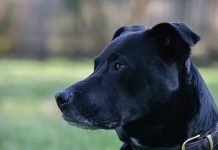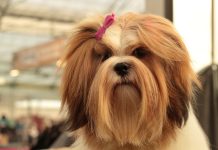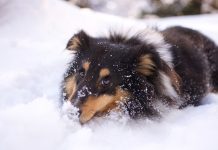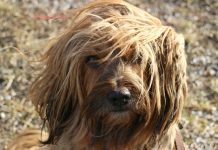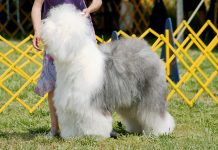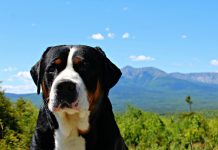History and Origins of the Pit Bull Breed

The term “Pit Bull” is a general name used to refer to several breeds and mixes that share similar physical characteristics. The most common breeds that fall under the “Pit Bull” category include the American Pit Bull Terrier, American Staffordshire Terrier, Staffordshire Bull Terrier, and sometimes the American Bulldog. Here’s an overview of the history, origins, and physical characteristics of these breeds:
History and Origins
- Origins: Pit Bull-type breeds originated in the United Kingdom in the 19th century. They were initially bred for bull-baiting and later became popular in blood sports like dogfighting due to their strength, athleticism, and tenacity.
- Breed Development: The breeds that make up the Pit Bull category share common ancestry with the old English Bulldog and were developed through crossbreeding with terrier-type dogs. The goal was to create a breed with the strength of a bulldog and the agility of a terrier.
- Immigration to America: Pit Bulls were brought to America by immigrants and became popular working and farm dogs. They were valued for their versatility and loyalty to their families.
- Modern Popularity: Despite their controversial history, Pit Bull-type dogs became popular family pets in America during the 20th century. They were admired for their affectionate nature, intelligence, and trainability.
Physical Characteristics and Appearance
- Size: Pit Bulls are medium-sized dogs, with males typically ranging from 18 to 21 inches in height at the shoulders and weighing 35 to 60 pounds. Females are slightly smaller.
- Muscular Build: Pit Bulls have a muscular and athletic build, with a deep chest and strong legs. They are known for their agility and endurance.
- Head: They have broad heads with strong jaws. The muzzle is medium-length and well-defined.
- Ears: Pit Bulls often have rose ears (folded back) or semi-prick ears (halfway up) that stand erect.
- Coat: They have short, smooth coats that are easy to maintain. Pit Bulls come in a variety of colors, including brindle, black, blue, fawn, red, and white.
- Tail: Their tails are medium-length and taper to a point. Pit Bulls may have a straight or slightly curved tail.
- Expression: Pit Bulls are known for their intelligent and alert expressions. They have bright, expressive eyes that convey their emotions.
It’s important to note that Pit Bulls are individuals with unique personalities, and their behavior and temperament can vary widely depending on genetics, socialization, and training. Responsible ownership, proper training, and positive socialization are essential for Pit Bull-type breeds to thrive as loving and well-adjusted companions.
Pit Bull Temperament and Personality Traits
Pit Bulls, including breeds like the American Pit Bull Terrier and American Staffordshire Terrier, are known for their distinctive temperament and personality traits. Understanding their characteristics and meeting their training and socialization needs are essential for responsible ownership. Here’s an overview of Pit Bull temperament and training requirements:
Temperament and Personality Traits
- Affectionate: Pit Bulls are generally affectionate and loving dogs. They form strong bonds with their families and are often referred to as “nanny dogs” for their gentle and protective nature towards children.
- Loyal: Pit Bulls are known for their loyalty and devotion to their owners. They are eager to please and thrive on positive interactions with their family members.
- Confident: These breeds are confident and courageous. They are not typically shy or timid and are known for their fearless demeanor.
- Intelligent: Pit Bulls are intelligent dogs that respond well to training. They are quick learners and enjoy mental stimulation.
- Energetic: Pit Bulls have a high level of energy and require regular exercise and activity to stay physically and mentally healthy. Daily walks, playtime, and interactive games are important to prevent boredom and destructive behaviors.
- Playful: Pit Bulls have a playful and exuberant personality. They enjoy interactive play with toys and engaging activities with their family members.
- Protective: Pit Bulls are naturally protective of their families and can be wary of strangers. Early socialization is important to teach them appropriate behaviors around new people and situations.
- Social: Properly socialized Pit Bulls can be friendly and sociable with other dogs and pets. Early socialization helps prevent aggression and promotes positive interactions with other animals.
Training and Socialization Needs
- Early Training: Pit Bulls benefit from early and consistent training. Positive reinforcement methods, such as rewards-based training and praise, work best for these breeds.
- Basic Obedience: Teach basic commands such as sit, stay, come, and down. Consistent training builds a strong bond between you and your Pit Bull and promotes good behavior.
- Socialization: Expose your Pit Bull to different people, animals, environments, and situations from a young age. Gradually introduce them to new experiences to build confidence and prevent fearfulness.
- Exercise Requirements: Provide regular exercise and mental stimulation through daily walks, interactive play sessions, and training activities. A tired Pit Bull is less likely to engage in unwanted behaviors.
- Positive Reinforcement: Use positive reinforcement techniques, such as treats, praise, and play, to motivate your Pit Bull during training sessions. Avoid harsh or punitive methods, as these can lead to fear or aggression.
- Consistency: Be consistent with rules, boundaries, and expectations. Pit Bulls thrive in environments with clear leadership and structure.
- Supervision: Always supervise interactions between your Pit Bull and children or unfamiliar animals. Despite their gentle nature, Pit Bulls are strong dogs and should be monitored during play.
By providing proper training, socialization, and care, Pit Bulls can be wonderful companions and family pets. Responsible ownership and positive reinforcement techniques are key to nurturing their positive qualities and ensuring their well-being.
Health Considerations and Common Issues in Pit Bulls
Pit Bulls, like any breed of dog, are prone to certain health considerations and common issues that potential owners should be aware of. Additionally, providing a suitable environment and lifestyle is crucial for the well-being of Pit Bulls. Here’s what you need to know:
Health Considerations and Common Issues
- Hip Dysplasia: Pit Bulls can be susceptible to hip dysplasia, a genetic condition where the hip joint doesn’t develop properly, leading to arthritis and mobility issues. Regular exercise and maintaining a healthy weight can help reduce the risk.
- Allergies: Some Pit Bulls may develop allergies to environmental factors, food ingredients, or parasites (like fleas). Symptoms may include itching, skin irritation, and digestive issues. Consult with a veterinarian to identify and manage allergies.
- Skin Issues: Pit Bulls are prone to skin conditions such as dermatitis and mange. Regular grooming, including bathing and proper skin care, can help prevent and manage skin problems.
- Heart Disease: Certain heart conditions, such as dilated cardiomyopathy (DCM), can affect Pit Bulls. Routine veterinary check-ups can help detect early signs of heart disease.
- Cancer: Pit Bulls may be predisposed to certain types of cancer, including mast cell tumors and lymphoma. Early detection and treatment are essential for managing cancer in dogs.
- Patellar Luxation: This condition, also known as “trick knee,” occurs when the kneecap dislocates from its normal position. Regular veterinary exams can help monitor for signs of patellar luxation.
- Vaccinations and Preventive Care: Pit Bulls should receive regular vaccinations, deworming, flea and tick prevention, and heartworm prevention as recommended by a veterinarian.
Suitable Environments and Lifestyle Considerations
- Active Lifestyle: Pit Bulls are energetic dogs that require regular exercise and mental stimulation. Provide daily walks, playtime, and interactive activities to keep them physically and mentally healthy.
- Secure Enclosures: Pit Bulls are strong and athletic dogs that may attempt to escape from inadequately fenced yards. Ensure that your property has a secure fence to prevent escapes.
- Socialization: Proper socialization is essential for Pit Bulls to develop good behavior and positive interactions with people and other animals. Expose them to different environments, experiences, and social settings from a young age.
- Positive Reinforcement Training: Use positive reinforcement methods, such as treats and praise, to train and reinforce good behavior. Consistent training helps Pit Bulls become well-mannered companions.
- Supervision with Children and Pets: Always supervise interactions between Pit Bulls and young children or unfamiliar pets. Despite their friendly nature, Pit Bulls are strong dogs and should be monitored during play.
- Veterinary Care: Schedule regular veterinary check-ups and vaccinations to ensure your Pit Bull’s overall health and well-being.
- Indoor Living: Pit Bulls thrive as indoor companions and should not be left outdoors for extended periods. They enjoy being close to their families and thrive in a loving and interactive household.
By providing proper care, attention, and a suitable environment, Pit Bulls can be wonderful, loyal, and loving companions. Responsible ownership, including regular veterinary care and preventive measures, is key to ensuring a happy and healthy life for your Pit Bull.
Pit Bull Variations and Breeding Practices
Pit Bulls encompass several breeds and mixes, including the American Pit Bull Terrier, American Staffordshire Terrier, Staffordshire Bull Terrier, and sometimes the American Bulldog. Each breed within the Pit Bull category has its own unique characteristics, but they share similar physical traits and temperaments.
Variations within Pit Bull Breeds
- American Pit Bull Terrier (APBT):
- The American Pit Bull Terrier is known for its muscular build, broad head, and powerful jaws.
- They have a short coat that comes in various colors, including brindle, fawn, red, blue, black, and white.
- APBTs are agile, intelligent, and affectionate dogs that are loyal to their families.
- They are medium-sized dogs with a height ranging from 17 to 21 inches and a weight between 30 to 60 pounds.
- American Staffordshire Terrier (AmStaff):
- The American Staffordshire Terrier is similar in appearance to the APBT but tends to be slightly larger and stockier.
- They have a strong and muscular build with a broad head and short coat.
- AmStaffs are known for their intelligence, confidence, and loyalty to their families.
- They typically weigh between 40 to 70 pounds and stand 17 to 19 inches tall at the shoulders.
- Staffordshire Bull Terrier (Staffie):
- The Staffordshire Bull Terrier is a smaller breed within the Pit Bull category, known for its compact and muscular body.
- They have a distinct “square” head shape and a short, smooth coat.
- Staffies are affectionate, courageous, and good-natured dogs that form strong bonds with their families.
- They weigh around 24 to 38 pounds and stand about 14 to 16 inches tall at the shoulders.
- American Bulldog (sometimes included in the Pit Bull category):
- The American Bulldog is a larger breed known for its athletic build and strong appearance.
- They have a short coat and come in various colors, including white with patches of brindle or other colors.
- American Bulldogs are confident, loyal, and protective dogs that are good with families.
- They are larger than other Pit Bull breeds, weighing between 60 to 120 pounds and standing around 20 to 28 inches tall.
Breeding Practices
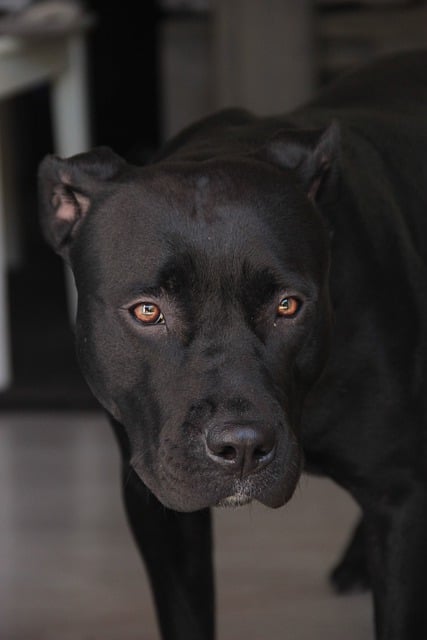
Breeding practices for Pit Bulls vary widely, and responsible breeding is essential to produce healthy, well-tempered dogs. Ethical breeders prioritize the health, temperament, and overall well-being of the dogs they breed. Here are some considerations for responsible Pit Bull breeding:
- Health Testing: Responsible breeders conduct health screenings for genetic conditions common in Pit Bulls, such as hip dysplasia, heart conditions, and skin issues.
- Temperament Evaluation: Good breeders select breeding pairs with stable and desirable temperaments to produce puppies with predictable behavior traits.
- Socialization and Training: Puppies from responsible breeders are exposed to early socialization and positive training experiences to prepare them for life as family pets.
- Pedigree and Lineage: Ethical breeders maintain detailed records of their dogs’ pedigrees and lineage to track health and temperament traits over generations.
- Education and Support: Responsible breeders provide ongoing support and education to puppy buyers, ensuring that new owners have the knowledge and resources to care for their Pit Bulls.
- Responsible Placement: Ethical breeders carefully screen potential puppy buyers and ensure that each puppy is placed in a suitable and loving home environment.
It’s important to research and choose a reputable breeder or consider adopting from a rescue organization when adding a Pit Bull to your family. Responsible breeding practices contribute to the health, temperament, and long-term well-being of Pit Bull breeds.
50 Best Names with Meanings for Pit Bulls
Choosing a name for your Pit Bull can be a fun and meaningful experience. Here are 50 great names with meanings that could suit a Pit Bull:
- Apollo – Named after the Greek god of the sun and light.
- Athena – Greek goddess of wisdom and warfare.
- Zeus – King of the Greek gods.
- Juno – Roman goddess of marriage and childbirth.
- Atlas – Titan in Greek mythology who held up the sky.
- Luna – Latin for “moon,” symbolizing femininity and mystery.
- Thor – Norse god of thunder.
- Freya – Norse goddess of love and fertility.
- Loki – Trickster god in Norse mythology.
- Sable – A type of dark fur, fitting for a Pit Bull’s coat color.
- Nova – Latin for “new,” representing brightness and energy.
- Kai – Hawaiian for “sea,” perfect for a water-loving breed.
- Jett – Referring to the black gemstone, jet.
- Rocco – Meaning “rest” or “battle cry” in German.
- Cleo – Short for Cleopatra, the Egyptian queen.
- Kona – Hawaiian for “lady.”
- Blaze – A name signifying fire and energy.
- Jasper – A gemstone known for its rich colors.
- Bella – Italian for “beautiful.”
- Maximus – Latin for “greatest.”
- Stella – Latin for “star.”
- Diesel – A strong and powerful name.
- Loki – Norse god of mischief.
- Gunner – A name that implies strength and power.
- Venus – Roman goddess of love and beauty.
- Milo – A name of German origin meaning “merciful.”
- Sasha – Russian for “defender of mankind.”
- Rex – Latin for “king.”
- Mia – Spanish for “mine.”
- Bruno – Derived from Germanic roots, meaning “brown.”
- Zara – Arabic for “princess.”
- Harley – A spirited and energetic name.
- Hunter – Reflecting the Pit Bull’s history as a hunting breed.
- Shadow – A mysterious and protective name.
- Jasmine – Fragrant flower symbolizing grace and elegance.
- Tyson – A powerful and bold name.
- Cassius – Latin for “hollow” or “empty.”
- Marley – Inspired by reggae legend Bob Marley.
- Layla – Arabic for “night.”
- Rocky – For a strong and resilient dog.
- Astra – Latin for “star.”
- Ranger – Suggesting bravery and loyalty.
- Roxy – A spunky and lively name.
- Raven – Symbolizing intelligence and mystery.
- Maverick – A nonconformist and independent name.
- Zelda – Meaning “gray fighting maid” in German.
- Echo – Greek mythological nymph who loved to talk.
- Milo – Germanic name meaning “merciful.”
- Nova – Latin for “new,” symbolizing brightness and energy.
- Ziggy – A playful and fun name.
Choose a name that resonates with your Pit Bull’s personality and characteristics. Whether you prefer a strong and powerful name or something more whimsical, these options provide plenty of inspiration for finding the perfect name for your beloved Pit Bull companion.

In conclusion, this comprehensive guide has provided an in-depth overview of Pit Bull dogs, highlighting their breed characteristics and essential care considerations. Throughout our exploration, we’ve discussed the history, distinctive traits, and important aspects of owning a Pit Bull.
Pit Bulls are known for their loyalty, strength, and affectionate nature towards their families. They are energetic and intelligent dogs that thrive on positive training and socialization. As you embark on your journey with a Pit Bull, it’s important to understand and appreciate their unique qualities and needs. With proper training, exercise, and socialization, Pit Bulls can make wonderful companions for responsible owners.
Remember to provide them with regular physical and mental stimulation, as well as plenty of love and attention. By understanding and respecting the breed, you can build a strong bond and create a fulfilling companionship with your Pit Bull.






